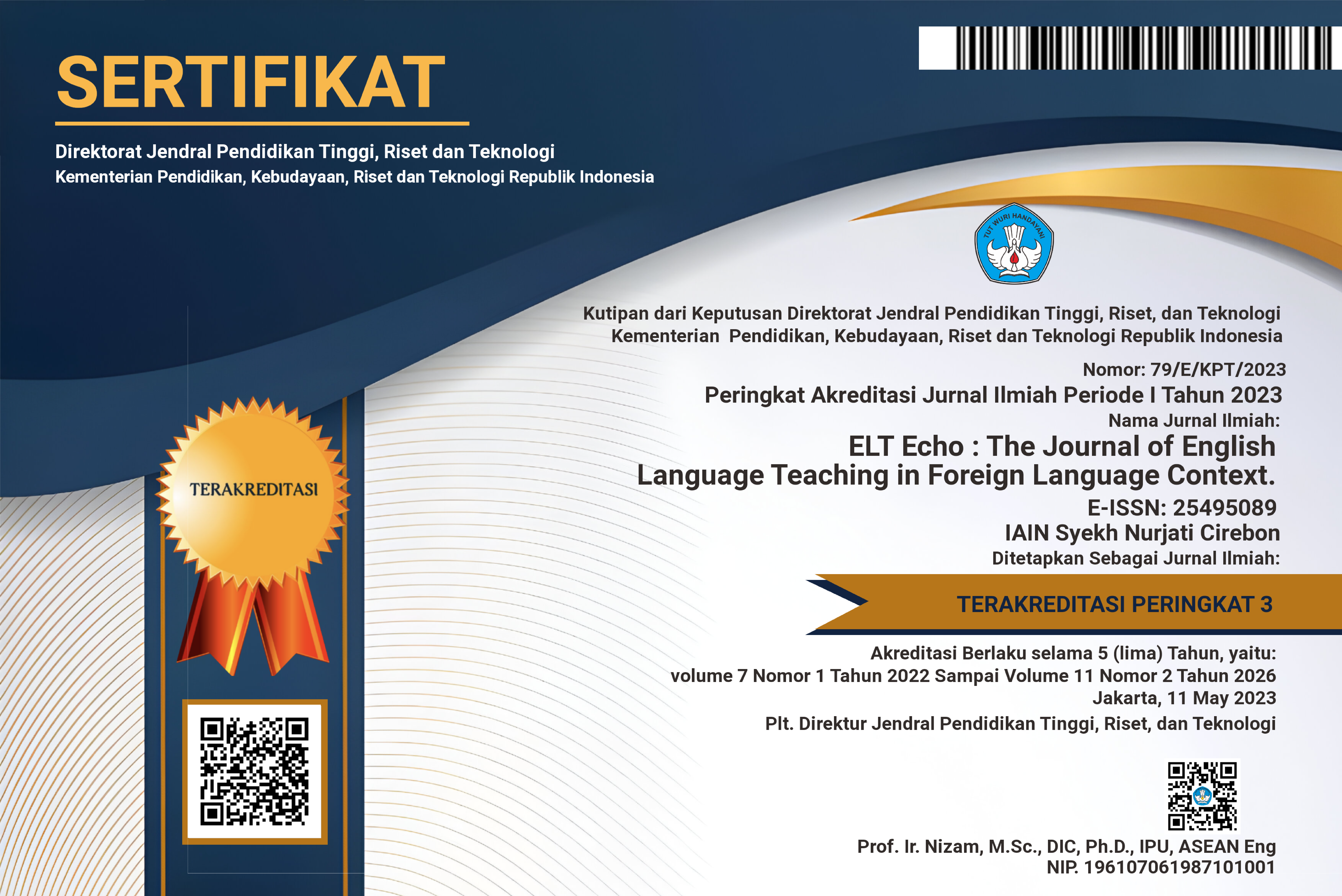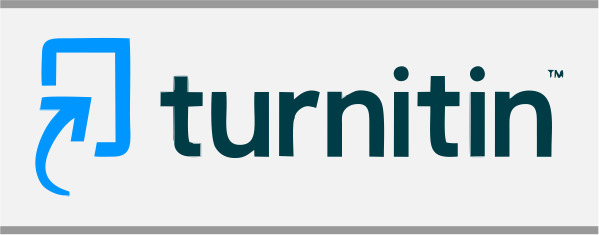QUIZIZZ PLATFORM AS THE REALIZATION OF ASYNCHRONOUS LEARNING TO IMPROVE STUDENTS’ VOCABULARY MASTERY
(1) PGRI Semarang University
(*) Corresponding Author
Abstract
Keywords
Full Text:
PDFReferences
Almanar, M. (2019) “Reviewing Students’ Vocabulary Mastery By Using Kahoot At Holmesglen Partnering With University of Muhammadiyah Tangerangâ€, Acitya: Journal of Teaching and Education, 1(2), pp. 78-87. doi: https://doi.org/10.30650/ajte.v1i2.212.
Alqahtani, M. (2015). The Importance Of Vocabulary In Language Learning And How To Be Taught. III(3), 21–34. https://doi.org/10.20472/TE.2015.3.3.002
Amalia, D. (2020). Quizizz Website as an Online Assessment for English Teaching and Learning: Students’ Perspectives. Jo-ELT (Journal of English Language Teaching) Fakultas Pendidikan Bahasa & Seni Prodi Pendidikan Bahasa Inggris IKIP, 7(1), 1-8. doi: https://doi.org/10.33394/joelt.v7i1.2638
Brown, H. D. (2004). Language Assessment: Principles and Classroom Practices. Pearson Education, Inc.
Cameron, T. L. to Y. L. L. (2002). Teaching Languages to Young Learners. L. Cameron. ELT Journal, 56(2), 201–203. https://doi.org/10.1093/elt/56.2.201
Cohen, L., Lawrence, M., & Morrison, K. (2017). Research Methods in Education. Eighth Edition. In Research Methods in Education.
Hiltz, S. R., & Wellman, B. (1997). Asynchronous Learning Networks as a Virtual Classroom. Communications of the ACM, 40(9), 44–49. https://doi.org/10.1145/260750.260764
James, C., & Wilkins, D. A. (1978). Notional Syllabuses. The Modern Language Journal, 62(3). https://doi.org/10.2307/324875
Kurniawan, M. C. D., & Huda, M. M. (2020). Pengaruh penggunaan quizizz sebagai latihan soal terhadap hasil belajar siswa kelas v sd. E-Journal.Hikmahuniversity.Ac.Id, 03(01)
Priyanti, N. W. I., Santosa, M. H., & Dewi, K. S. (2019). Effect of Quizizz towards the Eleventh-Grade English Students’ Reading Comprehension in Mobile Learning Context. Language and Education Journal Undiksha, 2(2), 71–80. https://doi.org/10.23887/leju.v2i2.20323
Renandya, W.A.,& Richards, J.C. (2002). Methodology in Language Teaching. New York : Cambridge University Press.
Sari, R. M. M., & Priatna, N. (2020). Model-Model Pembelajaran di Era Revolusi Industri 4.0 (E-Learning, M-Learning, AR-Learning dan VR-Learning). Jurnal Ilmiah Fakultas Keguruan Dan Ilmu Pendidikan, 6(1), 107–115.
Subarkah, A. (2014). Asynchronous Mobile Learning Menggunakan Sms Sebagai Media Komunikasi Skripsi Oleh : Afif Subarkah Asynchronous Mobile Learning Menggunakan. 75.
Suciningsih. (2020). Quizizz Sebagai Alat Penilaian Hasil Belajar dalam Masa Covid-19 di MI Muhammadiyah Tambakan Ajibarang Banyumas. Tesis: Institut Agama Islam Negeri Purwokerto.
Suharsono, A. (2020). Penggunaan Aplikasi Quizizz Dalam Pelatihan Dasar Cpns Kemenkeu Generasi Milenial. Paedagoria: Jurnal Kajian, Penelitian Dan Pengembangan Kependidikan, 11(1).
Williams, M. (2002). Teaching Languages to Young Learners. L. Cameron. ELT Journal, 56(2), 201–203. https://doi.org/10.1093/elt/56.2.201
Zhao, F. (2019). Using quizizz to integrate fun multiplayer activity in the accounting classroom. International Journal of Higher Education, 8(1). https://doi.org/10.5430/ijhe.v8n1p37
DOI: 10.24235/eltecho.v6i2.9312
Article Metrics
Abstract view : 91 timesPDF - 16 times
Refbacks
- There are currently no refbacks.
Â
This Journal is indexed by:
Â

This work is licensed under a Creative Commons Attribution 4.0 International License.










